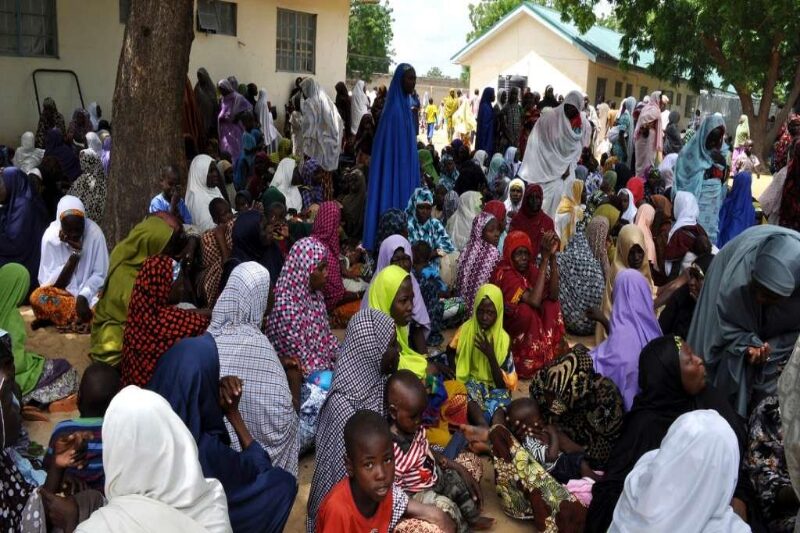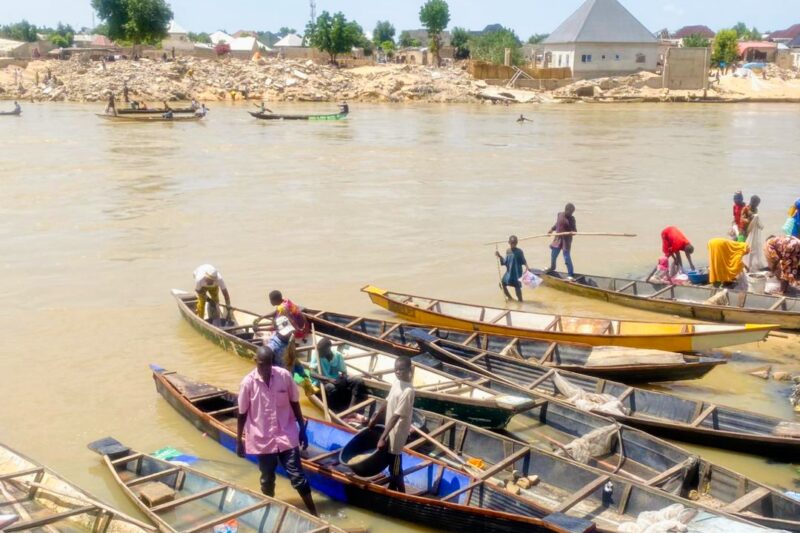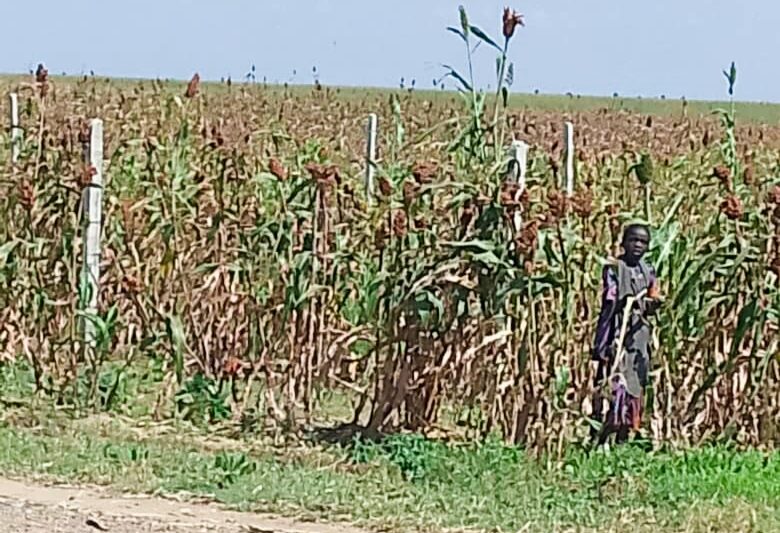Internally displaced persons (IDPs) in Borno State are starving – most of them are finding it hard to provide just one meal a day for their families with many parents giving whatever they have to their children and going to bed with empty bellies themselves.
Prices of all commodities – particularly food – have been on the increase for years in Nigeria as inflation has continued to rise but the suspension of the fuel subsidy on July 1 resulted in soaring costs that IDPs – and many ordinary citizens – simply cannot afford.
Almost two weeks ago, President Bola Ahmed Tinubu declared a state of emergency on food but, as yet, instead of coming down, prices have continued to skyrocket.
RNI spoke to IDPs living in Fariya Buzu, an informal camp in Maiduguri, the capital of Borno State, who said there had been no discount in food prices and they were still waiting for support from the government. Life was even harder because they received no humanitarian aid.
Ba Abdu Faryama, who has two wives and six children, said: “Life these days is difficult. Everything is expensive. Even bowls of maize are too expensive. A bowl of maize costs ₦1,300. We used to be able to buy two bowls a day to feed the family, so that meant two meals a day. But now we cook just one bowl which we have to share for dinner. Often the adults must be patient and we go to bed with empty stomachs or we eat peanuts and drink water. Instead of three meals a day we have now been forced to reduce that to one.”
Bintu Muhammad Bulama, a widow who takes care of her four children, told RNI that she used to sell sweet potatoes and groundnuts to people living in the camp but because of the high cost of living she no longer had capital.
“We used to eat millet twice a day. It is better than maize. But now we eat busheshen abinci [dry food]. It is cheaper at the market. A big bowl of dry food costs about ₦1,000 and it lasts for about two or three days. Then we must buy more. We eat it sparingly because of the cost.”
A tailor, Alhaji Ali kachallah, said: “I work so hard to get food. Before it got so expensive, we used to eat three meals a day. But we can no longer afford that. We cannot even have breakfast – it’s 11am and I have not put anything into my mouth. Last year I used to buy half a bag of maize at a time. Now just one bowl costs ₦1,300. Instead of maize I now buy broken rice [couscous] – one bowl lasts two days.”
Hafat Bukar, a mother of three, told RNI that their eating habits had changed drastically.
“Because food has become so expensive, we have had to adjust. We eat two meals a day. But now we just eat maize without stew. We have some pepper and oil. But when food was cheaper, we used to eat rice, maize, beans and yams. We added meat or fish. It was a lot easier when non-governmental organisations were helping us.”
The United Nations Children’s Fund (UNICEF) said in January that 25 million Nigerians would be at risk of facing hunger this year, an increase from 17 million last year.
Continued conflict, climate change, inflation and rising food prices were key drivers of this alarming trend. The northeastern states of Borno, Adamawa and Yobe (BAY) were more at risk, the agency said.
“This includes highly vulnerable displaced populations and returnees who are already struggling to survive a large-scale humanitarian crisis in which 8.3 million people need urgent assistance.”
It said children were most vulnerable to food insecurity, particularly those under the age of five, and there was a “serious risk of mortality” that could be attributed to acute malnutrition.
In the BAY states alone, the number of children suffering from acute malnutrition was expected to increase from 1.74 million last year to two million this year, UNICEF said.
ZAINAB ALHAJI ALI









